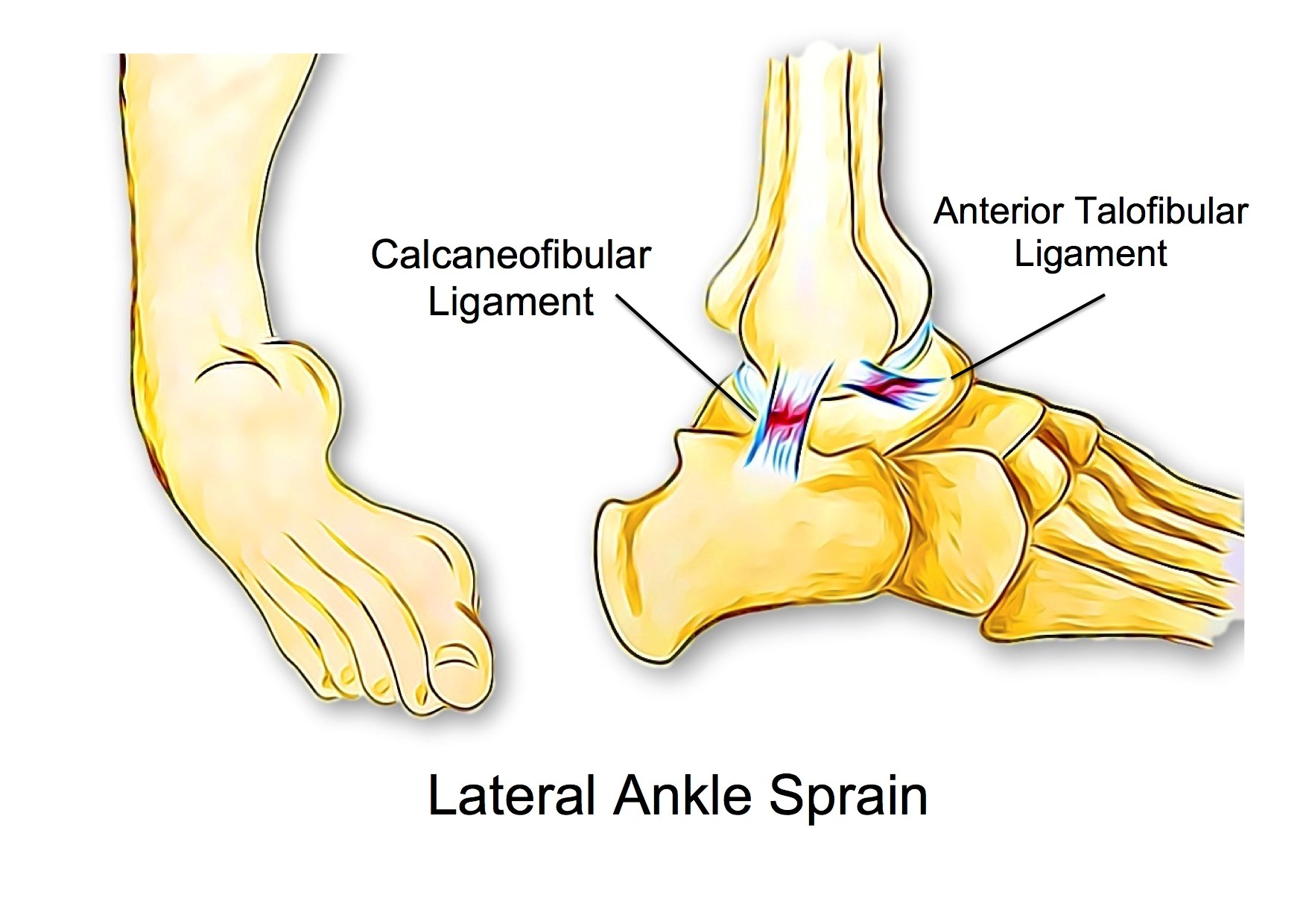
Can Poor Balance Lead To Ankle Sprains? Beachbox Physiotherapy
This article provides an overview of the MRI features of normal and abnormal ligaments of the ankle (Appendix 1). Injured ligaments on MRI may appear disrupted, thickened, heterogeneous, or attenuated in signal intensity, and may be abnormal in contour. Fluid-sensitive sequences are often helpful in detecting injury.

The Different Types of Ankle Sprain Ankle, Ankle Sprains and more
Function What do the ankle ligaments do? Ankle ligaments have several important jobs. They: Absorb shock when your foot strikes a surface. Connect the bones of your foot with your lower leg. Keep the bones in the proper position. Prevent your ankle from twisting, folding or collapsing.

2 Ligaments Torn In Ankle Lateral Ankle Ligament Injury Physio Check
There are various symptoms of ankle ligament tears, including: Swollen ankle joint. A sensation of instability. Bruising - can extend into your foot and up your lower leg. Tender to touch. Ankle pain - happens when putting weight on it. Popping noise when the injury first occurred.

ankle sprain, ATFL ligament, ankle, pain Sprained ankle, Sprain
June 21, 2021 All it takes is a simple misstep, and suddenly you have a sprained ankle. An ankle sprain is one of the most common musculoskeletal injuries in people of all ages, athletes and couch potatoes alike. The injury occurs when one or more of the ligaments in the ankle are stretched or torn, causing pain, swelling, and difficulty walking.
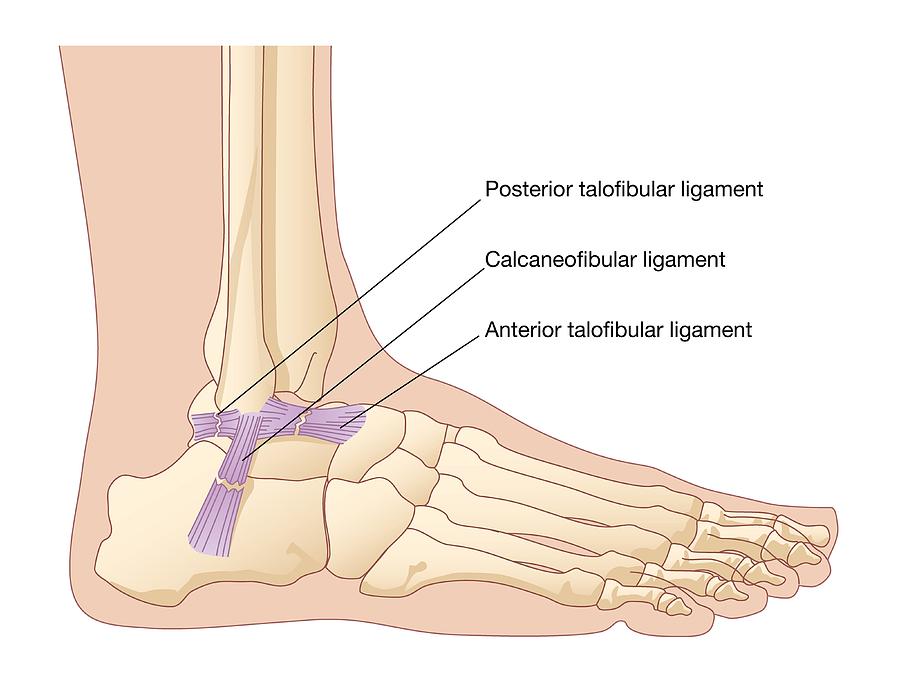
Torn Ankle Ligaments, Artwork Photograph by Peter Gardiner Pixels
A torn ligament is a painful injury that may be accompanied by swelling and bruising. Torn or stretched ligaments are also called sprains. They usually occur due to extreme force to a joint, such as with a fall or another high-impact event. Common ligament tears happen in the ankle, knee, wrist, thumb, neck, or back.
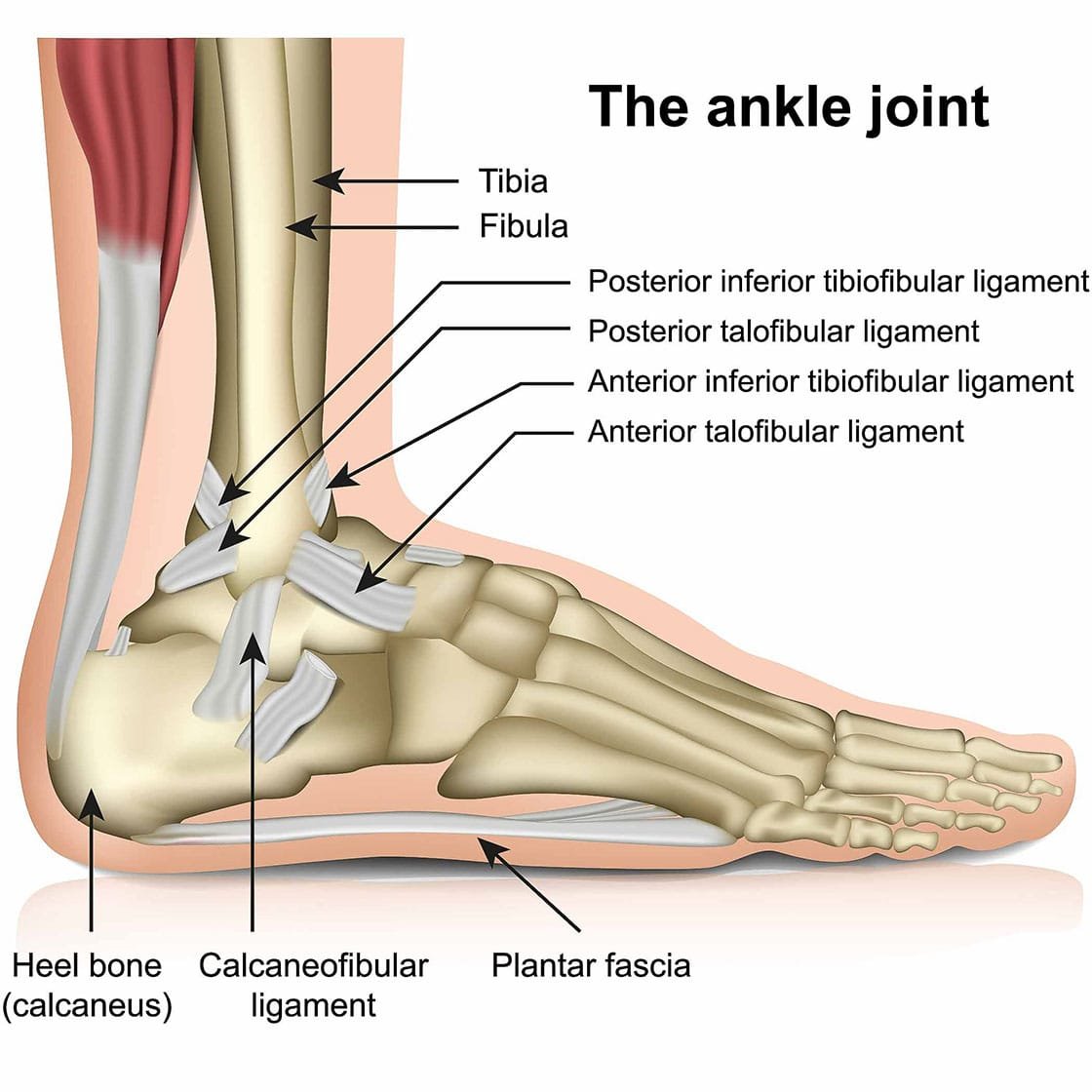
Lateral ankle ligament sprain Ultrasound Guided Injections
Grade 1: Minimal stretching and tiny microscopic tears in the fibers of the ligaments accompanied by mild swelling, redness and pain. Grade 2: Partial to moderate tear of the ligaments accompanied by swelling, redness and pain. Grade 3: Completely torn ligament accompanied by swelling, redness, pain and total ankle instability.
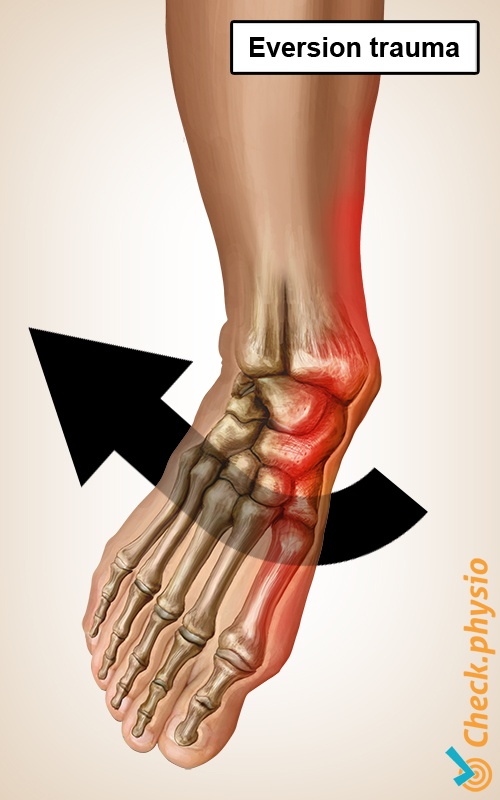
Medial ankle ligament injury Physio Check
It is made up of 4 ligaments that form the triangle, connecting the tibia to the navicular, the calcaneus, and the talus [1] .It is attached above to the apex and anterior and posterior borders of the medial malleolus. The plantar calcaneonavicular ligament can be considered as part of the medial ligament complex.
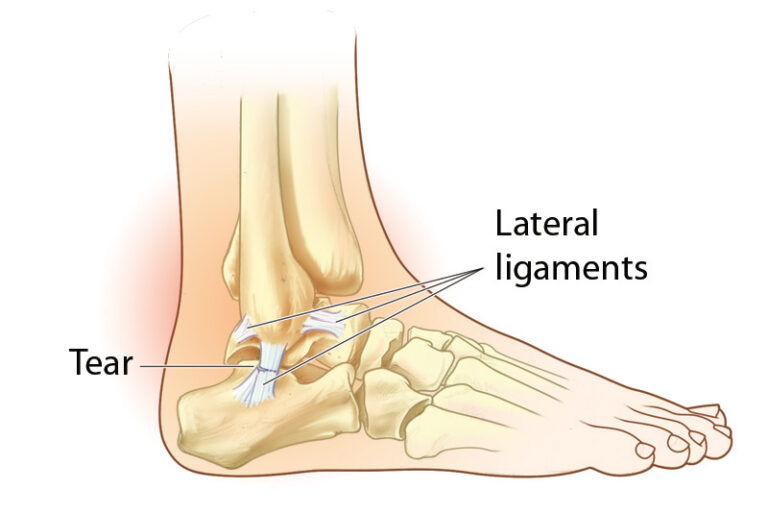
Ankle Ligament Tear Dr Bijan 4 Feet
Pain, a popping sound, swelling, bruising, stiffness and instability are signs of torn ankle ligaments. A severe ankle sprain typically causes severe signs, which may be similar to those seen with an ankle fracture. Video of the Day Pain and Popping Pain is the most common immediate sign of a partial or complete ligament tear of the ankle.
Ankle Ligament Surgery in Singapore Orion Ortho
An inversion sprain is the most common and occurs when the ankle turns in or out and the ligament on the outside of your ankle tears. Trips and falls cause inversion sprains. External rotation. An external rotation injury tears the ligament between the fibula and tibia, known as the syndesmosis ligament. This is also called a high ankle sprain.

Pin on Joints Treatment
Cause Patients often recall a twisting injury to their foot or ankle. If there is severe tearing of the ligaments, you might also hear or feel a pop. Sprains may occur unexpectedly during many different activities, such as: Walking or exercising on an uneven surface Falling down or tripping

Torn Ligament in my Ankle HubPages
Ankle Ligament Tear. Ligament tears in the ankle represent the more severe forms of ankle sprains (see section on ankle sprains ). These often occur in high energy ankle injuries such as car accidents, falls, significant sports injuries and ankle dislocations. These may also occur with ankle fractures as well. The most common and significant.
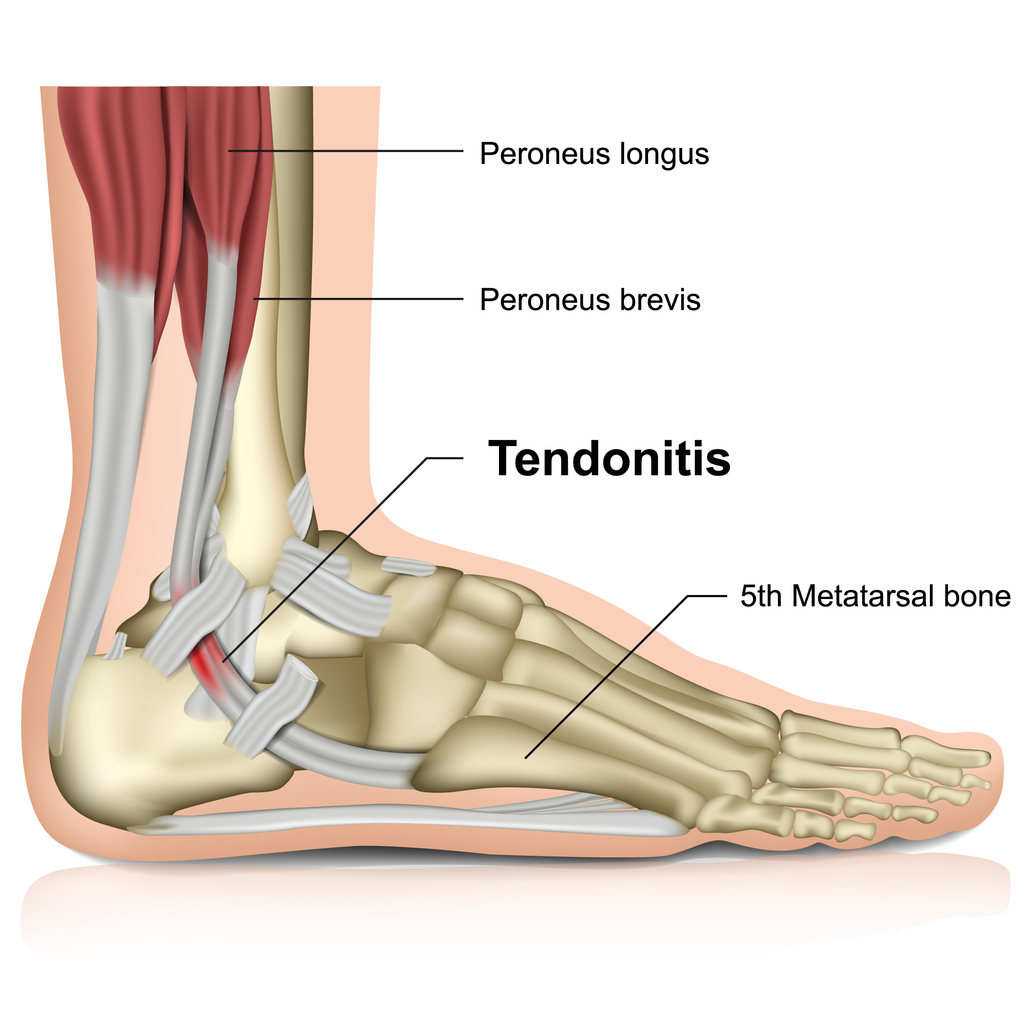
Peroneal Tendon Tears OC Foot and Ankle Clinic
Diagnosing torn lateral ankle ligaments is usually through physical examination and x-rays to identify any potential fractures. During the assessment the physician will determine: The degree of instability Loss of strength - Resisted eversion assessment Loss of range of motion (ROM): Dorsiflexion and Plantarflexion - Eversion and Inversion
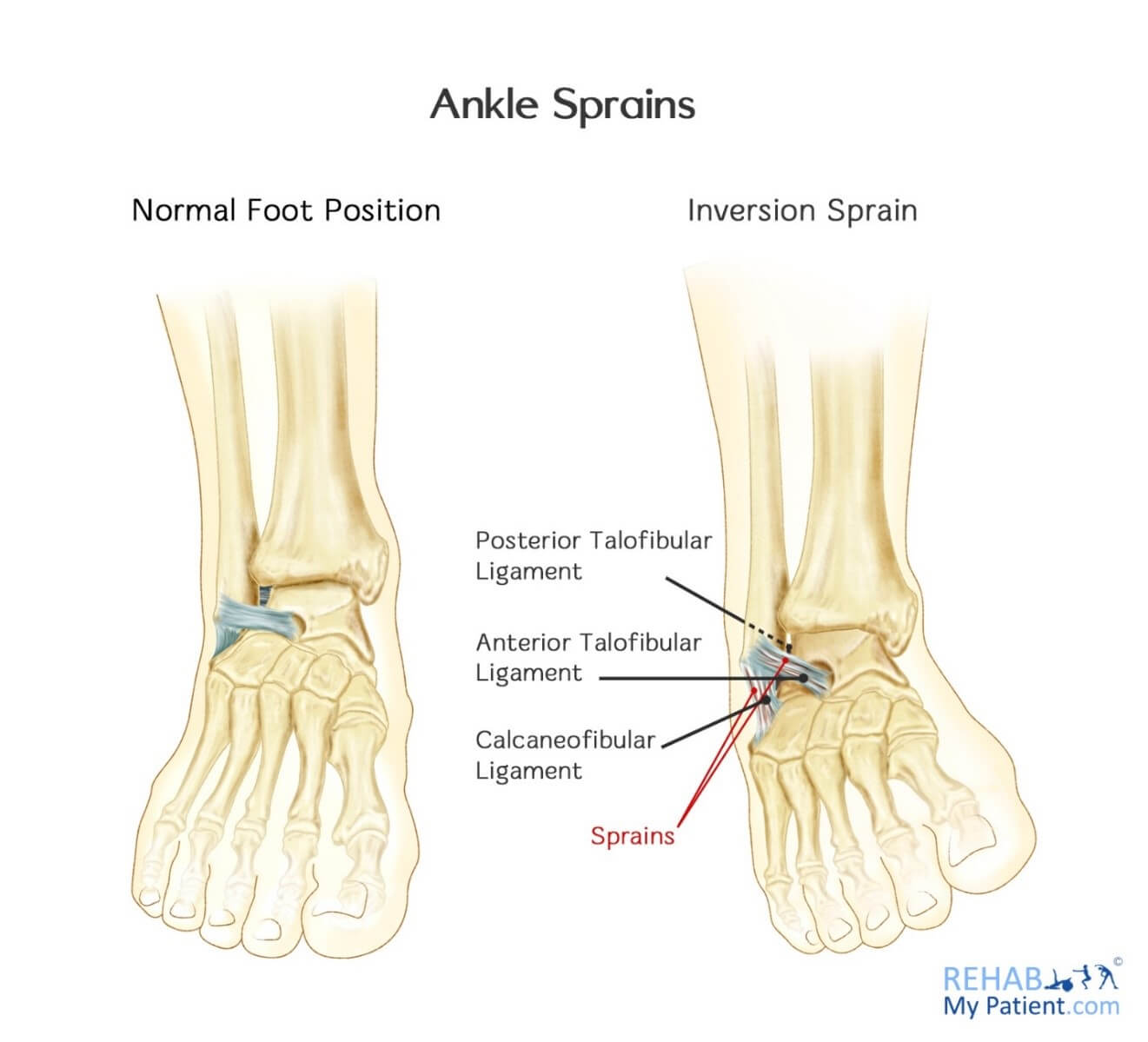
Inversion Sprain of the Ankle Rehab My Patient
The ligaments around the ankle can be divided, depending on their anatomic position, into three groups: the lateral ligaments, the deltoid ligament on the medial side, and the ligaments of the tibiofibular syndesmosis that join the distal epiphyses of the bones of the leg (tibia and fibula).
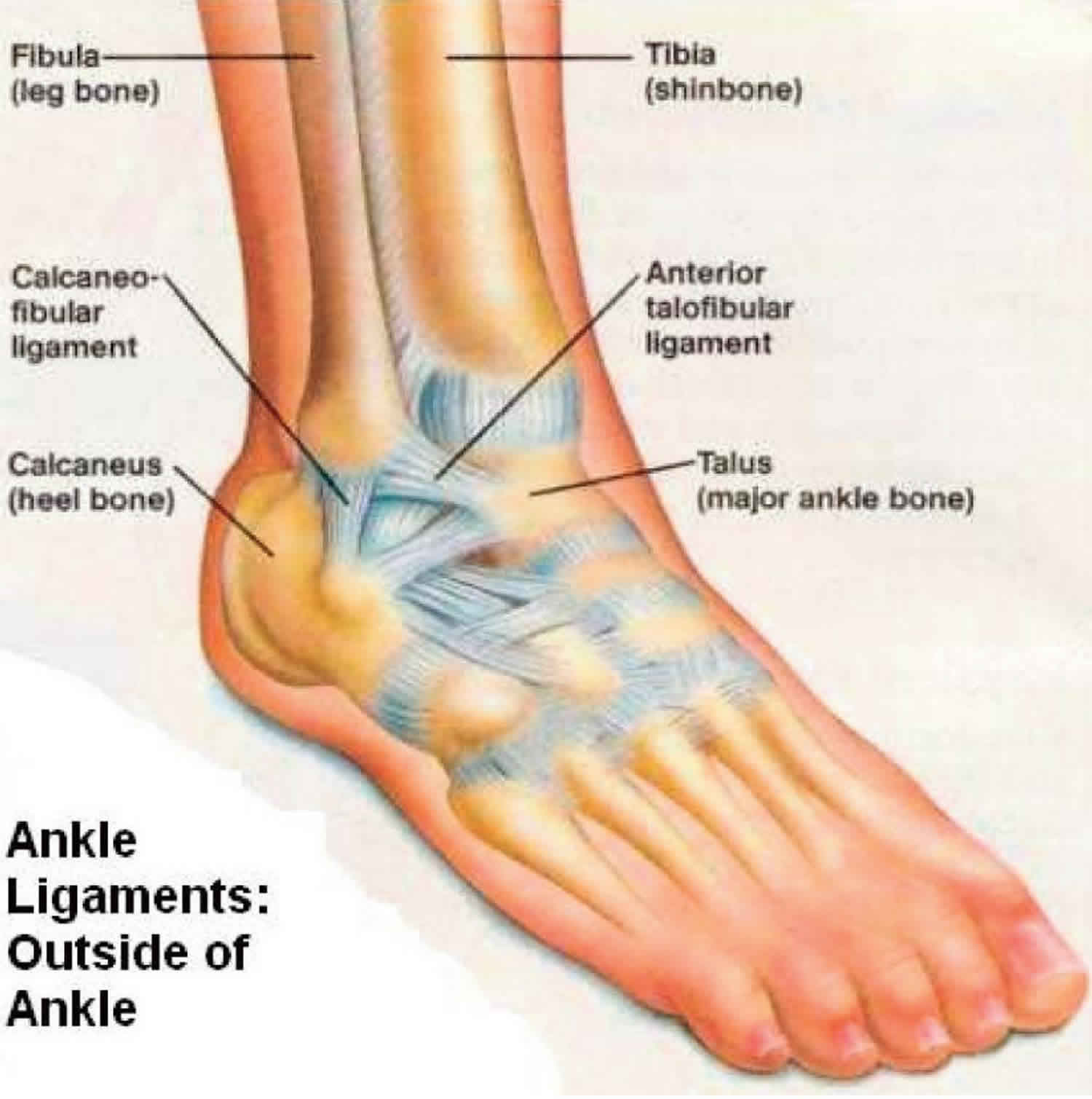
Anterior talofibular ligament tear & sprain, causes, symptoms
Lateral ankle ligament reconstruction is a surgery to tighten and firm up one or more ankle ligaments on the outside of your ankle. It's also known as the Brostrom procedure. It's most often done as an outpatient surgery, so you can go home the same day. Your ankle is a hinge joint that allows motion up and down, and from side to side.
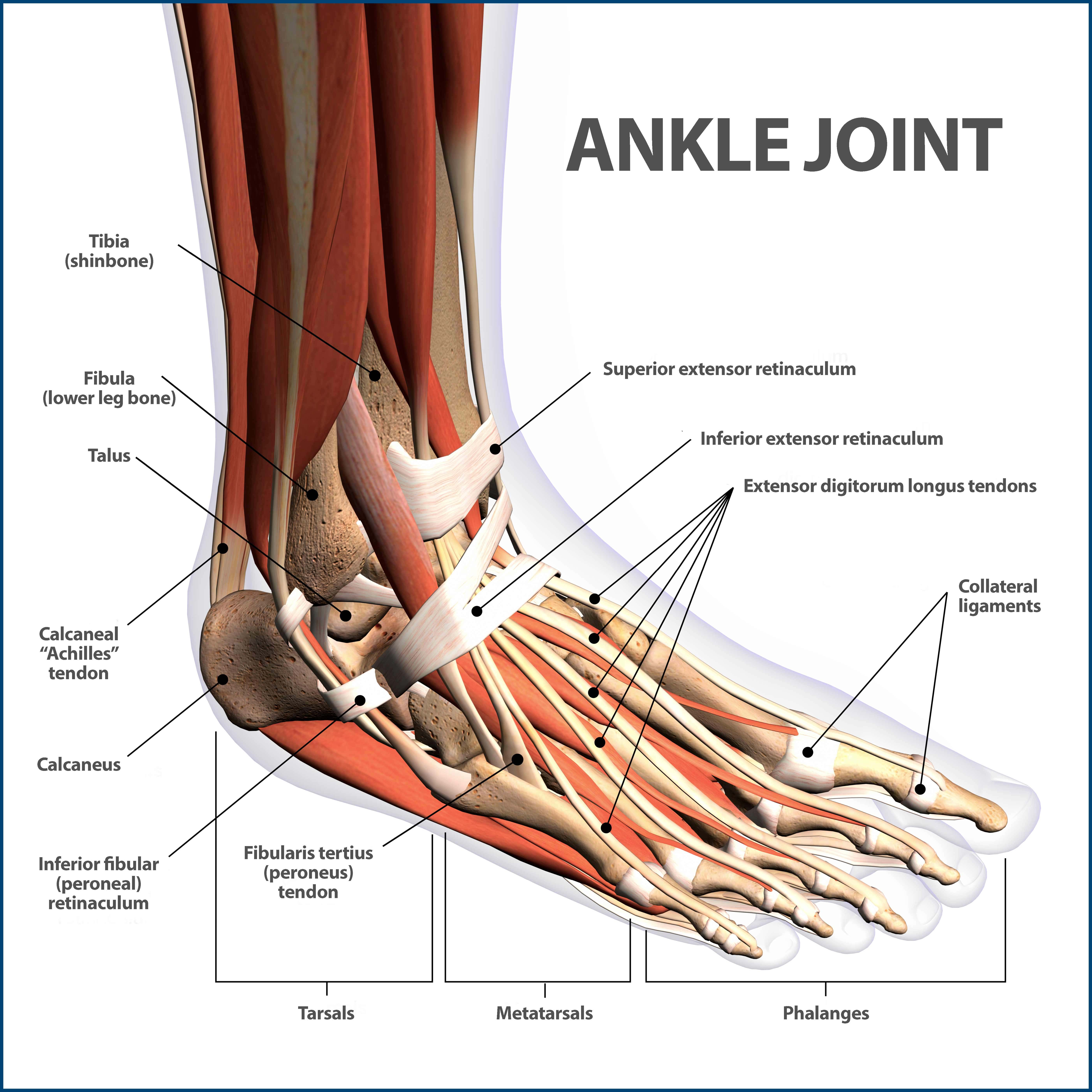
Ankle Fractures Broken Ankle Florida Orthopaedic Institute
Anatomy. superficial layer. crosses both ankle and subtalar joints. originates from anterior colliculus and fans out to insert into the navicular neck of the talus, sustenaculum tali, and posteromedial talar tubercle. the tibiocalcaneal (sustenaculum tali) portion is the strongest component in the superficial layer and resists calcaneal eversion.

Ankle Ligament Tear, Stock Video Envato Elements
What is an Ankle Ligament Tear? Sprained ankles are one of the most common injuries among adults. The bones of your ankle are supported and mobilised by a series of ligaments, tendons and muscles. The four ligaments connect the bones, while tendons link muscles to bones.